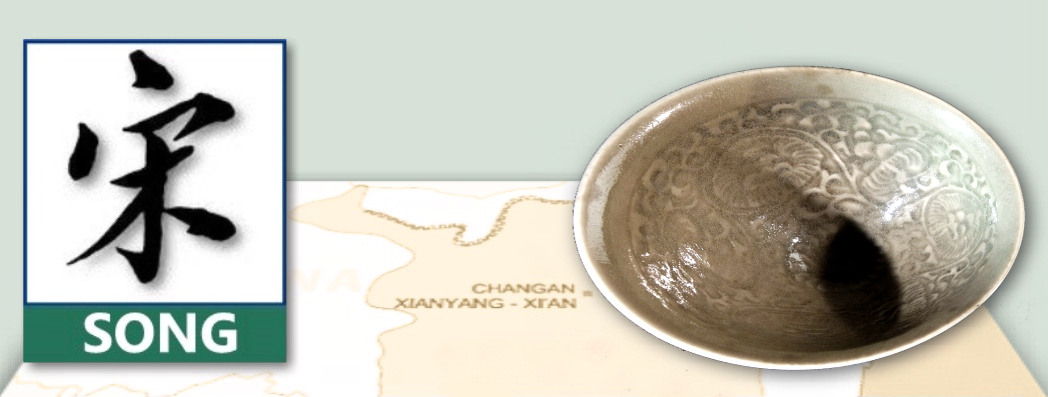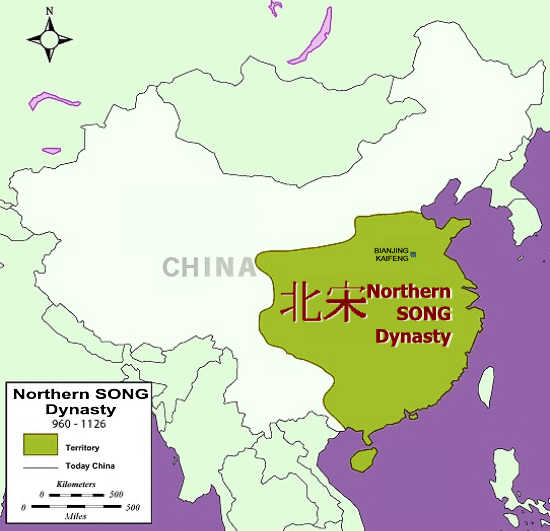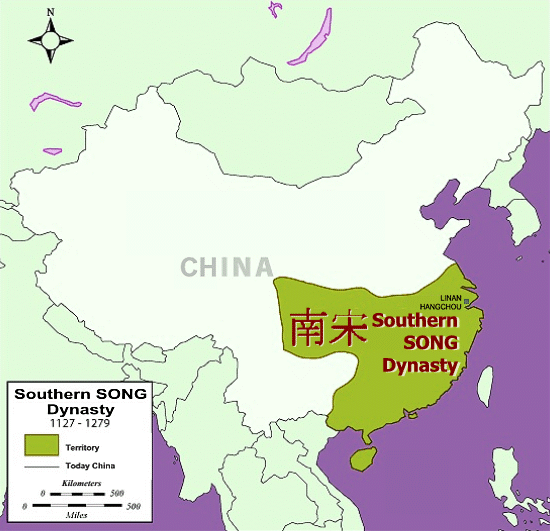960 - 1279: Song Dynasty

Image above - Bowl with molded decoration
Song Dynasty (960-1279)
After the Han and Tang dynasties, the Song Dynasty is considered the third golden age of Chinese civilization, with important progress in literature, philosophy and science. It lasted over 300 years (960-1279), although his kingdom is divided into the Northern Song period (960-1127) with capital Kaifeng, and Southern Song (1127-1279) with the capital Lin'an (present-day Hangzhou), Kuangyin Zhaojoined the central plains of China with the southern regions, founding the Song dynasty in 960.
The Song Dynasty brought the greatest economic prosperity in China's history, passing from agriculture to trade economy. The government granted the ownership of the land to the peasants, the merchant class was developed, and in the field of technology there is the discovery of the magnetic compass, printing and gunpowder. The production of paper, silk, the introduction of the cotton textile industry, and the art of porcelain continued to grow.
Freedom of expression and the invention of printing provided an ideal environment for scholars, writers, and artists to show their works of art beyond the empire. But it was also a period that experienced the brutality of invasions from the north (Jurchen, the Liao Dynasty), who in 1127 conquered the capital Kaifeng, and thus pushed the population to migrate to the south, establishing the new capital Lin'an (Hangzhou).
This tragic history of forced migration is well etched in the paintings of the Song.
The ceramics of the Song period developed well in its business and its technology, reaching very high levels of art in the process of cooking, in glaze, in decoration, and general appearance.
The "five famous imperial kilns" (Jun, Ru, Guan, Ge and Ding) exported porcelain in Thailand, Philippines, Indonesia, Japan, India, Europe and Egypt.
The end of this apex period of China, characterized by philosophy, art, political centralization, and economic growth, came to an end in 1279, when Kublai Khan, grandson of Genghis Khan, defeated the Southern Song Dynasty.

